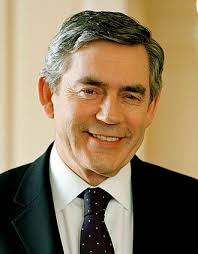Gordon Brown’s Significance in Contemporary Political Landscape

Introduction
Gordon Brown, the former Prime Minister of the United Kingdom and Chancellor of the Exchequer, continues to hold relevance in contemporary politics despite having left office in 2010. With his extensive experience in economic and social policies, Brown’s insights into global financial systems and domestic challenges make him a significant figure in discussions about current political strategies amidst a changing landscape influenced by issues such as Brexit and the COVID-19 pandemic.
Brown’s Ongoing Influence
Recently, Brown has been vocal on several pressing matters, including the challenges faced by the NHS and the ongoing energy crisis exacerbated by the war in Ukraine. In September 2023, he advocated for a new social contract that would ensure better healthcare access and economic stability for the working class. His proposals align with his earlier commitments to economic equity, echoing his Labour government’s focus on social justice and welfare reform.
Moreover, Brown has actively participated in public debates about global taxation policies, pushing for a minimum global corporation tax to prevent a race to the bottom that disadvantages workers. His involvement in organisations such as the World Health Organization highlights his commitment to addressing global challenges through cooperative governance.
Recent Events
In addition to his advocacy work, Brown’s recent appearances at political forums and conferences demonstrate his dedication to mentoring new leaders within the Labour Party. His supportive stance for party leader Keir Starmer has been noted as a crucial endorsement, especially with the next general election approaching. With the backdrop of economic instability and the pressing urgency of climate change, Brown’s experiences and policies could provide a framework for a revitalised Labour agenda.
Conclusion
As the United Kingdom navigates complex socio-economic challenges, Gordon Brown’s voice remains vital. His calls for reform and equitable policies resonate with a electorate increasingly concerned about their economic future. Observers may note the significant potential in Brown’s proposals, indicative of a balanced approach to governance that seeks to bridge discrepancies between the wealthy and the working class. Looking forward, Brown could influence the Labour Party’s manifesto as it prepares for the 2024 general election, ensuring that the issues he champions remain at the forefront of political discourse.
You may also like

The UKIP Party: Recent Developments and Future Outlook

Qatar’s Growing Influence in Global Affairs
